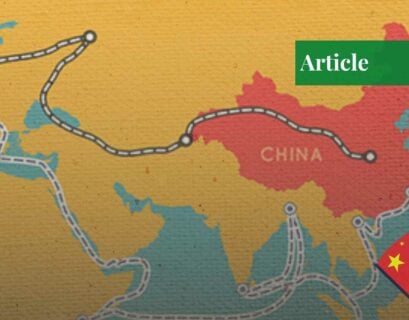Pre-Pandemic Situation
To understand the pre-pandemic economy of Hong Kong, we can view the official 2018 Economic Background and 2019 Prospects that communicates Hong Kong’s GDP (Gross Domestic Product) to have grown by 3.0% in 2018, which was above the predicted 2.8%. However, that proved to be much lower than its 3.8% GDP growth in 2017. The decreasing economic growth is imputed to US-Mainland China’s trade conflict and increasing US interest rates.
China-United States Trade War
In January 2018, the Trump administration began imposing trade barriers and tariffs on China on the pretext that China was embroiled in unfair trade practices and intellectual property theft. The trade war initially began when the Trump administration imposed tariffs on solar panels and washing machines. This was mainly to curtail the 8% of solar panels that were imported from China.
In the following months, the Trump administration imposed tariffs on aluminium and steel imports from all countries, another move to decrease trade with China. Although this trade war was between Mainland China and the United States, it significantly impacted the economic situation in Hong Kong, which is highly dependent upon trade.
According to Hong Kong’s economic 2018 survey, if the Sino-US trade war continued in the same manner, it would translate to deaccelerated growth for Hong Kong in 2019 and the upcoming years. The prediction was correct. In 2019, the Hong Kong economic outlook indicated a 1.2% contraction, the first economic contraction since 2009.
The Pandemic Situation in Hong Kong
The Hong Kong economy contracted for the second consecutive year in 2020 by 6.1%. This steep economic decline was mainly due to the decrease in domestic demand and export reduction. The social distancing measures imposed by the government along with the lockdowns caused supply chain disruptions and a decline in internal demand.
Lockdowns, border closures, and flight restrictions were also leading causes of export disruption. Exports decreased from 4.6% in 2019 to 0.3% in 2020, while imports decreased from 7.3% in 2019 to 2.1% in 2020. Thus, GDP increased from 1.2% in 2019 to 6.1% in 2020.
The Cash Payout Scheme
This government scheme was initiated in 2020 during the pandemic to provide relief to the residents of Hong Kong. Each eligible person, individuals over 18 years or older possessing a valid Hong Kong ID card, was disbursed HK$10,000 to spend. This was similar to the stimulus relief packages many countries proposed to provide support to their citizens.
Post-Pandemic Economic Recovery
The Hong Kong economy has shown meager improvements over the past several months of 2022. In the second quarter of 2022, real GDP decreased by 1.6% from the preceding quarter. Although domestic demand, galvanized by the easing of lockdown restrictions, has seen a revival, exports have remained stagnant from the first quarter of 2022 due to weakened global demand and cross-boundary transportation disruptions.
Consumption Voucher Scheme
The consumption voucher scheme is a government initiative launched in July 2021, with the goal to encourage and increase local consumption. The vouchers were provided to individuals over 18 years of age with valid Hong Kong ID cards. The vouchers could be used in convenience stores, department stores, and other locations that accept them.
The scheme will continue until October 31, 2022. After that date, the vouchers will hold no monetary value. According to Kantar’s study, the scheme will aid in economic recovery from the losses incurred during the pandemic and is expected to increase consumption by 23% by the end of 2022.
Recommendations
It is evident that Hong Kong’s economy has not fully recovered from the impact of the pandemic. Although various interventions have been deployed to aid economic recovery, a combination of other measures is also required to assist in the recovery process. Hong Kong has already initiated a key scheme referred to as the consumption voucher scheme to aid domestic spending and consumption.
Another measure could be to provide loans to companies that have been severely affected by the pandemic. This will not only help the country domestically but also increase exports in the case of surplus production and protect local businesses from foreign investors.
Moreover, jobs must be created to help the individuals who have lost their source of income due to the pandemic. The economy in Hong Kong is steadily recovering from its deep, Covid-fueled economic slump. The government has announced various initiatives to promote economic growth with a major focus on domestic consumption and increasing exports.
These measures have helped decrease the employment rate to 4.3% as of August 17, 2022 from 4.7% within just three months. However, unless these measures are combined with other initiatives to stimulate the economy, the prospects of returning to its pre-pandemic position seem unlikely.
If you want to submit your articles and/or research papers, please check the Submissions page.
The views and opinions expressed in this article/paper are the author’s own and do not necessarily reflect the editorial position of Paradigm Shift.



















